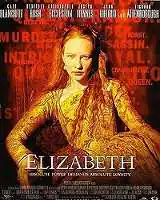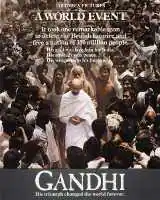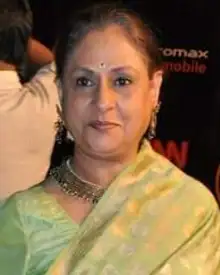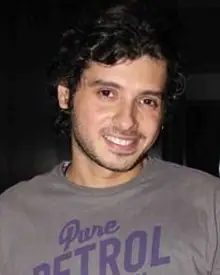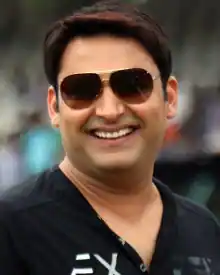X

John Gielgud
Actor
Biography:
Sir Arthur John Gielgud, OM, CH (14 April 1904 – 21 May 2000) was a celebrated English actor/director/producer. A descendant of the renowned Terry acting family, he became especially celebrated for his youthful, emotionally expressive Hamlet which broke box office records on Broadway in 1937. He was known for his beautiful speaking of verse and particularly for his warm and expressive voice, which his colleague Sir Alec Guinness likened to "a silver trumpet muffled in silk". Gielgud is the only Briton on the short list of entertainers who have been awarded an Emmy, a Grammy, an Oscar, and a Tony. Career Arthur John Gielgud was born in South Kensington in London to Kate Terry and Frank Gielgud. He was of a noble theatrical lineage, being the grandson of actress Kate Terry and the great nephew of Dame Ellen Terry, as well as of Marion Terry, Fred Terry, and all their actor siblings. His elder brother Val Gielgud came to be a pioneering influence in BBC Radio. His niece Maina Gielgud is a dancer and one time artistic director of The Australian Ballet and the Royal Danish Ballet. Early stages After Hillside Preparatory School in Godalming, Surrey and Westminster School, where he gained a King's Scholarship, Gielgud trained briefly at RADA and understudied Noel Coward in Coward's The Vortex in the West End. He had his initial success as a stage actor in classical roles, first winning stardom during a successful two seasons at the Old Vic Theatre from 1929 to 1931 where his performances as Richard II and Hamlet were particularly acclaimed, the latter being the first Old Vic production to be transferred to the West End for a run. He returned to the role of Hamlet in a famous production under his own direction in 1934 at the New Theatre in the West End. He was hailed as a Broadway star in Guthrie McClintic's production in which Lillian Gish played Ophelia in 1936. (The production's popularity was assisted when a rival staging featuring film star Leslie Howard opened shortly afterward and was critically denounced in comparison to Gielgud's. Gielgud's production broke the long-run record for a Broadway "Hamlet.") There followed a 1939 production that Gielgud again directed at the Lyceum Theatre, historic for having been the professional home for Henry Irving's company. This was the last production to play the Lyceum until 50 years later when it was restored to host, among other shows, the hit musical The Lion King. Gielgud's Hamlet would be later taken to Elsinore Castle in Denmark (the actual setting of the play), there was a 1944 production directed by George Rylands, and finally a 1945 production that toured the Far East under Gielgud's own direction. In his later years, Gielgud would play the Ghost of Hamlet's Father in productions of the play, first to Richard Burton's Melancholy Dane on the Broadway stage which Gielgud directed in 1964, then on television with Richard Chamberlain, and finally in a radio production starring Gielgud's protégé Kenneth Branagh. Gielgud had triumphs in many other plays, notably his greatest popular success Richard of Bordeaux (1933) (a romantic version of the story of Richard II), The Importance of Being Earnest which he first performed at the Lyric Hammersmith in 1930 and which would remain in his repertory until 1947, and a legendary production of Romeo and Juliet (1935) which Gielgud directed and alternated the roles of Romeo and Mercutio with a young Laurence Olivier in his first professional Shakespearean leading role. Olivier's performance won him an engagement as the leading man of the Old Vic Theatre the following season, starting his career as a classical actor, but he was said to have resented Gielgud's direction and developed a wary relationship with Gielgud which resulted in Olivier turning down Gielgud's request to play the Chorus in Olivier's film of Henry V and later doing his best to block Gielgud from appearing at the Royal National Theatre when Olivier was its director.. Queen's Theatre season Gielgud had hoped to stay in America after his Broadway performance as Hamlet in 1936 to play Richard II in New York, but director Guthrie McClintic was so certain that the production would fail in the U.S. that Gielgud gave up the idea (and was dismayed when Maurice Evans had a legendary success in the play on Broadway after Gielgud gave him his blessing to mount it when he decided not to). Instead, Gielgud returned to London in 1937 and had an enormous influence on the development of English Theatre when he produced a season of plays at the Queen's Theatre in 1937/38, presenting the aforementioned Richard II, The School for Scandal, Three Sisters, and The Merchant of Venice with a permanent company (that included Peggy Ashcroft, Michael Redgrave and Alec Guinness) that would shape the development of such theatrical institutions as the Royal Shakespeare Company and the Royal National Theatre. Gielgud acted in all four productions and directed the two Shakespeare plays, while Tyrone Guthrie directed The School for Scandal and Michael Saint-Denis staged Three Sisters. From Sheridan Morley's authorized biography: "Accustomed as we have now become to...the National Theatre and the Royal Shakespeare Company, it is almost impossible to conceive how revolutionary John's idea was for the West End of 1937, where there had name of a st in north west district simply been nothing like it since the heyday of Henry Irving and the actor-managers more than fifty years earlier." Laurence Olivier said that Gielgud's performance in The School for Scandal was "the best light comedy performance I have ever seen - or ever shall!" and considered his Shylock to be among his greatest impersonations, but the greatest success of the season was the production of Three Sisters, with Gielgud's performance as Vershinin, coupled with his successes in The Seagull (1929 and 1936), The Cherry Orchard (1954), and Ivanov (1965) establishing Chekhov's acceptance on the English-speaking stage. Shakespearean legacy It would always be, however, for his Shakespearean work that Gielgud would be best known. In addition to Hamlet which he played over 500 times in six productions, he gave what some consider definitive performances in The Tempest (as Prospero) in four productions (and in the 1991 film Prospero's Books), as well as in other roles - Richard II in three productions, Benedick in Much Ado About Nothing which he first played in 1930 and revived throughout the 1950s, Macbeth and Oberon in A Midsummer Night's Dream twice, Romeo three times, and King Lear four times (as well as taking on the part for a final time in a radio broadcast at the age of 90). He also had triumphs as Malvolio in Twelfth Night (1931), Shylock in The Merchant of Venice (1937), Angelo in Measure for Measure (1950), Cassius in Julius Caesar (1950) (which he immortalized in the 1953 film), Leontes in The Winter's Tale (1951), and Cardinal Wolsey in Henry VIII (1959) (although his 1960 performance as Othello was not a success). It became rumored that Gielgud also provided the voice for the uncredited role of the Ghost of Hamlet's Father in Laurence Olivier's 1948 film version, but the voice was actually that of Olivier, electronically distorted. Gielgud did play the Ghost in his own film of the play in 1964 and in the 1970 Hallmark Hall of Fame presentation starring Richard Chamberlain. Gielgud's crowning achievement, many believe, was Ages of Man, his one-man recital of Shakespearean excerpts which he performed throughout the 1950s and 1960s, winning a Tony Award for the Broadway production, a Grammy Award for his recording of the piece, and an Emmy Award for producer David Susskind for the 1966 telecast on CBS. Gielgud made his final Shakespearean appearance on stage in 1977 in the title role of John Schlesinger's production of Julius Caesar at the Royal National Theatre. He also made a recording of many of Shakespeare's sonnets in 1963. Among his non-Shakespearean Renaissance roles, his Ferdinand in John Webster's The Duchess of Malfi was well-known. Later stage work As he aged, Gielgud sought out distinctive new voices in the theatre, appearing in plays by Edward Albee (Tiny Alice), Alan Bennett (Forty Years On), Charles Wood (Veterans), Edward Bond (Bingo, in which Gielgud played William Shakespeare), David Storey (Home), and Harold Pinter (No Man's Land), the latter two in partnership with his old friend Ralph Richardson, but he drew the line at being offered the role of Hamm in Beckett's Endgame, saying that the play offered "nothing but loneliness and despair." It looked as though Gielgud would retire from the stage after appearing in Half Life at the Duke of York's Theatre in 1978, but he made a successful comeback in 1988 in Hugh Whitemore's play The Best of Friends as museum curator Sydney Cockerell. Directing career Gielgud was almost as highly regarded for his work as a theatre director as for his acting, having staged his first production as a guest director of the Oxford University Dramatic Society production of Romeo and Juliet in 1932. The custom of OUDS at the time was to cast student undergraduates in the male roles and professional actresses in the female roles. Gielgud engaged Peggy Ashcroft as Juliet and Edith Evans as the nurse, who would play the same roles three years later in his legendary production of the play at the New Theatre. Gielgud quickly rose to the status of being one of the top directors for the H.M. Tennent, Ltd. production company in London's West End Theatre and later on Broadway, his productions including Lady Windermere's Fan (1945), The Glass Menagerie (1948), The Heiress (1949), his own adaptation of The Cherry Orchard (1954), The Potting Shed (1958), Five Finger Exercise (1959), Peter Ustinov's comedy Half Way Up a Tree (1967), and Private Lives (1972). Gielgud won a Tony Award for his direction of Big Fish, Little Fish in 1961, the only time he won the award in a competitive category (having won honorary awards for "Best Foreign Company" for his 1947 production of The Importance of Being Earnest and for his one-man show Ages of Man). He also directed the operas The Trojans in 1957 and A Midsummer Night's Dream in 1960. Gielgud directed other actors in many of the Shakespearean roles that he was famous for playing, notably Richard Burton as Hamlet (1964), Anthony Quayle as Benedick in Much Ado About Nothing (1950), and Paul Scofield as the title role in Richard II (1952). But Gielgud didn't always have the magic touch, staging a disappointing revival of Twelfth Night with Laurence Olivier and Vivien Leigh in 1955 and a disastrous production of Macbeth with Ralph Richardson in 1952. But Gielgud was best known for directing productions in which he also starred, including his greatest commercial success Richard of Bordeaux (1933), his definitive production of The Importance of Being Earnest (1939, 1942, 1947), Medea with Judith Anderson's Tony Award-winning performance of the title role with Gielgud supporting her as Jason (1947), The Lady's Not for Burning (1949) that won Richard Burton his first notoriety as an actor, and Ivanov (1965). But many believed that his greatest successes were in Shakespearean productions in which he both directed and starred, especially Romeo and Juliet (1935), Richard II (1937, 1953), King Lear (1950, 1955), Much Ado About Nothing (1952, 1955, 1959) and his signature role of Hamlet (1934, 1939, 1945). Radio work Gielgud's brother Val Gielgud became the head of BBC Radio Production in 1928, and John made his radio debut there the following year in a version of Pirandello's The Man With the Flower in His Mouth, which he was then performing at the Old Vic Theatre. In the ensuing years, John played many of his greatest stage roles on BBC Radio including Richard of Bordeaux, The Importance of Being Earnest, The Tempest, and Hamlet, one production of which featured Emlyn Williams as Claudius, Celia Johnson as Ophelia, and Martita Hunt as Gertrude (the part she played in Gielgud's debut in the role at the Old Vic in 1930). He also played some Shakespearean roles which he would never essay on stage, such as Iago in a 1932 broadcast of Othello opposite Henry Ainley as the Moor, Buckingham (1954) and Cranmer (1977) in Henry VIII, and Friar Laurence in Romeo & Juliet for the first time when he was eighty-nine. John Gielgud played Sherlock Holmes for BBC radio in the 1950s, with Ralph Richardson as Watson. Gielgud's brother, Val Gielgud, appeared in one of the episodes, perhaps inevitably, as the great detective's brother Mycroft. This series was co-produced by the American Broadcasting Company. Orson Welles appeared as Professor Moriarty in The Final Problem. Gielgud gave one of his final radio performances in the title role of an All Star production of King Lear in 1994 that was mounted to celebrate his 90th birthday. The cast included Judi Dench, Kenneth Branagh, Derek Jacobi, and Simon Russell Beale. Film work Although he began to appear in British films as early as 1924, making his debut in the silent movie Who Is the Man?, he would not make an impact in the medium until the last decades of his life. His early film roles were sporadic and included the lead in Alfred Hitchcock's Secret Agent (1936), Benjamin Disraeli in The Prime Minister (1940), Cassius in Julius Caesar (1953) (BAFTA Award for Best British Actor), George, Duke of Clarence to Olivier's Richard III (1955), and Henry IV to Orson Welles' Falstaff in Chimes at Midnight (1966). But he lost his aversion to filming in the late 1960s, and by the 1980s and 1990s he had thrown himself into the medium with a vengeance, so much so that it was jokingly said that he was prepared to do almost anything for his art. He won an Academy Award for his supporting role as a sardonic butler in the 1981 comedy Arthur, starring Dudley Moore and Liza Minnelli, a New York Film Critics Circle Award for Providence (1977), and a BAFTA Award for Murder on the Orient Express (1974), and his performances in The Charge of the Light Brigade (1968), The Elephant Man (1981), and Shine (1996) were critically acclaimed. In 1991, Gielgud was able to satisfy his life's ambition by immortalizing his Prospero on screen in the film Prospero's Books. Television also developed as one of the focal points of his career, with Gielgud giving a particularly notable performance in Brideshead Revisited (1981). He won an Emmy Award for Summer's Lease (1989) and televised his stage performances of A Day by the Sea (1957), Home (1970), No Man's Land (1976) and his final theatre role in The Best of Friends as Sydney Cockerell in the 1991 Masterpiece Theatre Production, along with Patrick McGoohan and Dame Wendy Hiller. In 1983, he made his second onscreen appearance with fellow theatrical knights Laurence Olivier and Ralph Richardson (following Olivier's own Richard III) in a television miniseries about composer Richard Wagner. In 1996 he played a wizard in the TV adaptation of Gulliver's Travels. Gielgud and Ralph Richardson were the first guest stars on Second City Television. Playing themselves, they were in Toronto during their tour of Harold Pinter's No Man's Land. According to Dave Thomas, in his book, SCTV: Behind the Scenes, their sketch stank and the actors gave a bad performance. Gielgud's final television performance was on film in Merlin in 1998, his final television studio appearance having been in A Summer Day's Dream recorded in 1994 for the BBC 2 Performance series. Gielgud was one of the few people who has won an Emmy, a Grammy, an Oscar and a Tony Award. Gielgud's final onscreen appearance in a major release motion picture was as Pope Paul IV in Elizabeth which was released in 1998. His final acting performance was in a film adaptation of Samuel Beckett's short play Catastrophe, opposite longtime collaborator Harold Pinter and directed by American playwright David Mamet; Gielgud died mere weeks after production was completed at the age of 96 of natural causes. Origins and personal life Lithuanian origin Gielgud's Catholic father, Franciszek Giełgud, born 1880, was a descendant of a Lithuanian noble family residing at Gelgaudiškis manor dating back to the Grand Duchy of Lithuania (now a town in Marijampolė County, Lithuania). The Lithuanian form of the name Giełgud is Gelgaudas. Sir John's grandfather was Adam Giełgud (1834-1920), married to Leontyna Aniela Aszperger. Adam Giełgud's father's (Jan Giełgud's) mother was Countess Eleonora Tyszkiewicz-Łohojski, Clan Leliwa (by heraldic adoption). As a descendant of Tyszkiewicz (Tiškevičius) counts he was related to many well-known Polish and Lithuanian personalities, including actress Beata Tyszkiewicz and other Lithuanian noble families.. Personal life Gielgud lived and thrived in an era when there was a conspiracy of silence around homosexuality outside of theatrical circles. And so, not too long after he was knighted, Gielgud endured an horrific humiliation. In 1953, Gielgud was convicted of "persistently importuning for immoral purposes" (cottaging) in a Chelsea mews, i.e., he was arrested for trying to pick up a man in a public lavatory. There was much discussion behind closed doors about whether his career could endure the ignominy, but he continued to rehearse the play in which he was scheduled to direct and act. Instead of being rejected by the public, he received a standing ovation at the play's initial opening in Liverpool, in part because of his co-star Sybil Thorndike, who seized him as he stood in the wings unable to bring himself to make his first entrance and brought him onstage, whispering , "Come on, John darling, they won't boo me." Biographer Sheridan Morley writes that while Gielgud never denied being homosexual, he always tried to be discreet about it and felt humiliated by the ordeal. Some speculate that it helped to bring to public attention a crusade to decriminalise homosexuality in England and Wales.Longtime partner Martin Hensler died just a few months before Gielgud's own death in 2000. He only publicly acknowledged Hensler as his partner in 1988, in the programme notes for The Best of Friends, which was his final stage performance. Gielgud would avoid Hollywood for over a decade for fear of being denied entry because of the arrest. The 'Gielgud case' was dramatised by critic turned playwright Nicholas de Jongh in the play Plague Over England and performed at the Finborough, a small London theatre, in 2008, with Jasper Britton as Gielgud. In 2009 the play was presented for a limited run at the Duchess Theatre, in London's West End, with Michael Feast (who had worked with Gielgud) in the main role. Laurence Olivier's friendship with Gielgud was peppered with barely acknowledged competitive tension, for, while Olivier's fame as a film actor eventually eclipsed Gielgud's, Gielgud had been the great Shakespearean actor when Olivier was just coming up and that was hard for Olivier to forget. Gielgud maintained a very close relationship with Olivier's second wife, the beautiful film and stage star Vivien Leigh, throughout the Oliviers' marriage, their divorce and her subsequent descent into madness. In Curtain (1991), Michael Korda's novel based on the marriage of Laurence Olivier and Vivien Leigh, Gielgud becomes Philip Chagrin. Another fictionalised Gielgud – this time given the family name John Terry – appeared around the same time as de Jongh's play in Nicola Upson's detective novel An Expert in Murder, a crime story woven around the original production of Richard of Bordeaux. John Gielgud was cremated at Oxford Crematorium. Other interests Sir John Gielgud believed that animals should not be exploited. He was particularly fond of birds and joined PETA's campaign against the foie gras industry in the early 1990s, narrating PETA's video exposé of the force-feeding of geese and ducks. Many chefs and restaurateurs who saw that video dropped foie gras from their menus. Sir John received PETA’s Humanitarian of the Year Award twice, in 1994 and 1999. Following his death it was revealed that late in his life he had made financial contributions to the lobby group Stonewall, but had insisted that his support not be made public. He also authored several books, including his memoirs in An Actor and His Time, Early Stages and Distinguished Company. He also co-wrote, with John Miller, Acting Shakespeare.
Read More
John Gielgud Movies
| Movies | Director | Release Date |
|---|---|---|
|
|
Shekhar Kapur | 22 Nov 1998 |
|
|
Richard Attenborough | 30 Nov 1982 |
John Gielgud: Age, Net Worth, Movies, Family, and Personal Details
About John Gielgud |
|
| Name | John Gielgud |
| Profession(s) |
Main Profession Other Profession |
| Date Of Birth | 14 Apr 1904 |
| Age | 120 |
| Birth Place | South Kensington, London |
| Current Residence | |
| Religion | |
| Nationality | |
| Height | |
| Zodiac Sign | |
| Hobbies | |
John Gielgud Net Worth |
|
| Net Worth | |
Frequently Asked Questions (FAQs) About John Gielgud
-
What is John Gielgud's age?
The age of John Gielgud in the 2024 was 120.
-
Where was the John Gielgud born?
The John Gielgud's was born in South Kensington, London.
-
What is the John Gielgud date of birth?
The DOB for John Gielgud was 14 Apr 1904.
-
What is John Gielgud's latest movie?
The most recent movies for John Gielgud is Elizabeth.
John Gielgud News
-
 Kajal Aggarwal Takes Major Pay Cut For Bollywood Movie?
Kajal Aggarwal Takes Major Pay Cut For Bollywood Movie? -
 Goody's family wins legal damages over funeral pics
Goody's family wins legal damages over funeral pics -
 Yoko Ono says John Lennon would have loved Beatles game
Yoko Ono says John Lennon would have loved Beatles game -
 Tom Brady dismisses reports of Gisele Bundchen's pregnancy
Tom Brady dismisses reports of Gisele Bundchen's pregnancy -
 Gisele slammed for talking about Bridget's son
Gisele slammed for talking about Bridget's son -
 Maidaan X Review: Ajay Devgn’s Sports Drama Is Power Packed & Captivating;..
Maidaan X Review: Ajay Devgn’s Sports Drama Is Power Packed & Captivating;..
Advertisement
Celeb Birthdays
-
Jaya Bachchan Apr 9
-
Swara Bhaskar Apr 9
-
Priyanka Upadhyay Apr 9
-
David Harbour Apr 10
-
Mandy Moore Apr 10
-
Ayesha Takia Apr 10
-
Jamie Chung Apr 10
Celebs In Spotlight
Enable




 Click it and Unblock the Notifications
Click it and Unblock the Notifications



